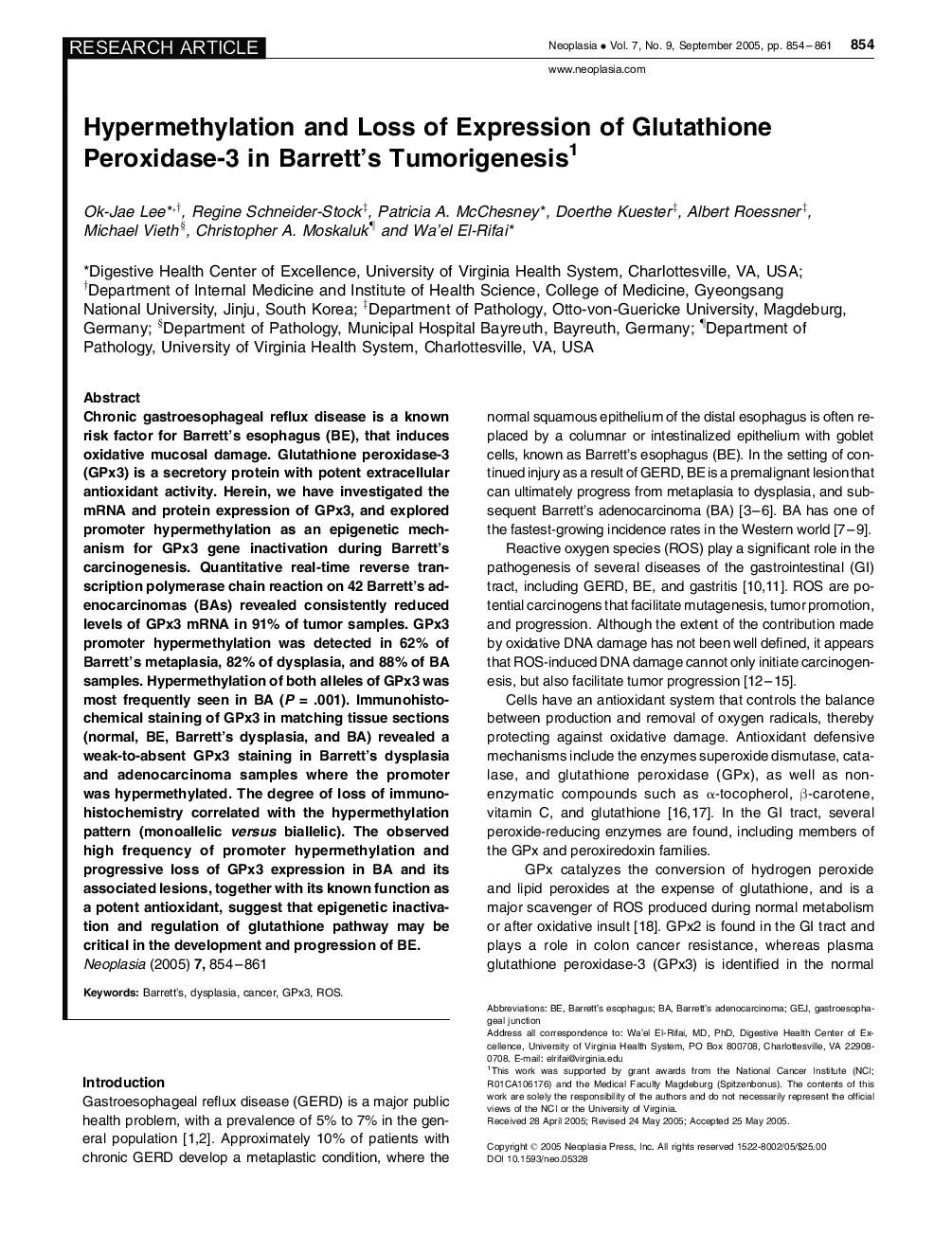| Article ID | Journal | Published Year | Pages | File Type |
|---|---|---|---|---|
| 10915463 | Neoplasia | 2005 | 8 Pages |
Abstract
Chronic gastroesophageal reflux disease is a known risk factor for Barrett's esophagus (BE), that induces oxidative mucosal damage. Glutathione peroxidase-3 (GPx3) is a secretory protein with potent extracellular antioxidant activity. Herein, we have investigated the mRNA, protein expression of GPx3, explored promoter hypermethylation as an epigenetic mechanism for GPx3 gene inactivation during Barrett's carcinogenesis. Quantitative real-time reverse transcription polymerase chain reaction on 42 Barrett's adenocarcinomas (BAs) revealed consistently reduced levels of GPx3 mRNA in 91% of tumor samples. GPx3 promoter hypermethylation was detected in 62% of Barrett's metaplasia, 82% of dysplasia, 88% of BA samples. Hypermethylation of both alleles of GPx3 was most frequently seen in BA (P = .001). Immunohistochemical staining of GPx3 in matching tissue sections (normal, BE, Barrett's dysplasia, BA) revealed a weak-to-absent GPx3 staining in Barrett's dysplasia, adenocarcinoma samples where the promoter was hypermethylated. The degree of loss of immunohistochemistry correlated with the hypermethylation pattern (monoallelic versus biallelic). The observed high frequency of promoter hypermethylation, progressive loss of GPx3 expression in BA, its associated lesions, together with its known function as a potent antioxidant, suggest that epigenetic inactivation, regulation of glutathione pathway may be critical in the development, progression of BE.
Keywords
Related Topics
Life Sciences
Biochemistry, Genetics and Molecular Biology
Cancer Research
Authors
Ok-Jae Lee, Regine Schneider-Stock, Patricia A. McChesney, Doerthe Kuester, Albert Roessner, Michael Vieth, Christopher A. Moskaluk, Wa'el El-Rifai,
